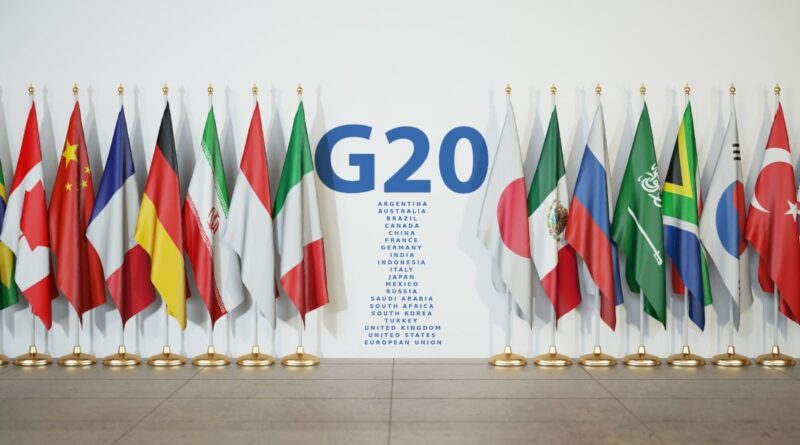
On 23 June 2021, the G20 Labour Ministerial meeting took place in Sicily following a joint meeting of G20 Labour and Education Ministers on the day before.
International Organization of Employers (IOE) President, Erol Kiresepi, together with B20 Chair, Emma Marcegaglia, represented business and employers in the G20 Labour Ministerial. B20 is the official G20 dialogue with the business community, representing the global business community across all G20 member states and all economic sectors.
At the meeting, Erol Kiresepi called for taking every possible to encourage and accelerate the creation of new employment opportunities after the pandemic. He explained that It would be beneficial to give priority to removing the obstacles in front of employers in order to create employment by supporting entrepreneurs, businesses and workers with strong incentives in order to increase employment.
The joint meeting of Labour and Education ministers recognizes that education is key for a smooth transition from school to work, as well as the importance of lifelong learning. The Education and Labour ministers expressed their commitment to promote cooperation among education and training institutions, employment service providers, trade unions, employers’ organizations, to design responsive policies and programmes.
The joint declaration of Labour and Education Ministers stresses the importance of entrepreneurship training and re-affirms the relevance of technical and vocational education and training.
The Labour Ministerial meeting on 23 June focused on three main areas:
- More, better, and equally paid jobs for women
- Social protection systems in a changing world of work
- Working patterns, business organisation and production process in the digitalisation era.
The Labour Ministers acknowledged the need to work towards ensuring that the regulatory frameworks are adapted to new forms of work to fully harness the potential of new technologies, and protect and improve the working conditions of workers .
The Ministers also committed to promote, in cooperation with relevant Ministries, an enabling environment for entrepreneurship and sustainable enterprises, in particular micro, small and medium-sized enterprises, as well as cooperatives and the social economy. Generating and maintaining quality jobs, full, productive and freely chosen employment, equal career perspectives for men and women and improved living standards for all represents as a common goal.
Emma Marcegaglia, Chair of B20, said that “[i]t is critical to grant business, especially micro-small & medium enterprises, a sustainable and inclusive cross-border working environment by enacting policies, security standards, and operational mechanisms to uplift efficiency and productivity. These, however, need to be complementary to each other, and be effectively coordinated both domestically and internationally.”
Rick Johnston, Chair of Business at Organization for Economic Co-operation and Development (OECD), added that “indeed the objective of this work is to offer a simple, though powerful, enabling mechanism that can allow firms to access and take full advantage of Global Value Chains (GVCs), while minimizing the burdensome and too often duplicative trade finance processes.”
Bettina Schaller, President of World Employment Confederation (WEC), pointed out that the pandemic has shown it is time to also accelerate the coordination on education, employment and social policies to address the social and employment challenges to come. She commented that “[i]t was a special edition on this 23rd of June 2021, with health and safety measures abounding in a context of hope as the vaccination campaigns continue to unfold across the World. This Ministerial Meeting was an important one as it sets the tone for the priorities in the coming months. The Heads of State will gather in Rome in October 2021. They will be fed by all the working groups that accompany the G20 process, from Health to Trade & Investment to Development to the Digital Economy to Antic-Corruption to Energy Transition and Climate Sustainability to Environment to Culture to Tourism and to Agriculture. All areas need to re-emerge after the pandemic. The World of Employment and Education needs to rise like a phoenix from the ashes!”
In addition, following the B20-OECD-Business at OECD annual meeting last Friday 16 July 2021, the B20, the Business at OECD (BIAC) and the IOE published a joint paper on "Trade Finance, a flywheel effect to boost the economic recovery post COVID-19 pandemic", proposing three concrete recommendations to the G20 in support of access to trade finance. The paper says that “in order to recover from the challenges posed by the pandemic, it is critical to target solutions that foster trade and boost growth through supporting the efficiency and productivity of the private sector activities”.
The newly released paper progresses the work on the “GVC Passport”, a proposal that focuses on reducing barriers that firms in general and small and medium enterprises in particular encounter in their quest to participate in global value chains, as cross-border fragmentation and friction continue to impede the free flow of people, capital, goods and services. -This proposal was initiated last year under the B20 Saudi Arabia Presidency, calling on G20 nations to work towards a system envisioning a significant reduction in bureaucracy, while increasing transparency and traceability, as well as facilitate firms’ access to wider markets.
Working on the basis of the B20 relevant recommendations and policy actions, the newly released paper recommends three concrete actions:
- Explore the opportunity to promote the Legal Entity Identifier (LEI) as a worldwide unique identifier standard to facilitate more effective counterparty identification and verification on a global scale;
- Legally recognize digital documentation to allow for a greater use of digital documents in trade finance processes, thereby helping to reduce friction, monetary and environmental costs;
- Leverage digital technologies by establishing well-defined security principles and minimum requirements to make digital platforms trusted ecosystems for global value chains (GVCs) implemented consistently across jurisdictions.